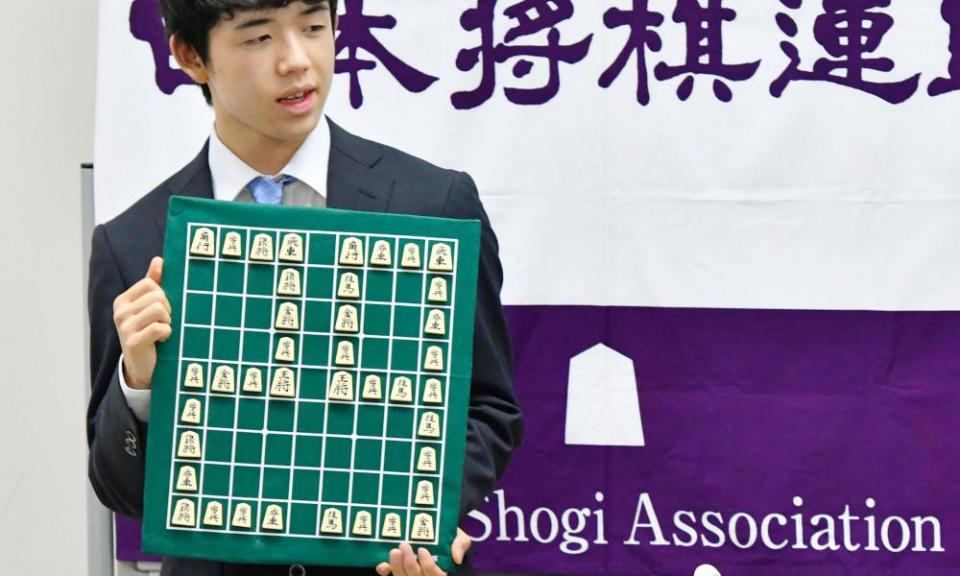Japan's love of shogi reignited thanks to 14-year-old record-breaker

A schoolboy has set a record for consecutive victories in professional shogi – a Japanese version of chess – winning plaudits from the prime minister and sparking a surge of interest in the board game.
Sota Fujii, 14, recorded his 29th straight win late on Monday, taking more than 11 hours to beat his opponent in the first round of the prestigious Ryuo championship in Tokyo.
The previous record, 28 consecutive wins, was set in 1987 by Hiroshi Kayama, 57.
The unassuming teenager, dressed in a dark blue suit and tie, has attracted huge media coverage, eclipsing reports on the troubled airbag maker Takata. Up to 7.4 million people watched online as Fujii edged towards victory on Monday.
“Winning 29 times in a row was beyond my imagination, so I feel happy, but at the same time I’m also very surprised,” Fujii, Japan’s youngest professional shogi player, told a crowd of reporters in Tokyo.
The prime minister, Shinzō Abe, congratulated Fujii, saying: “A young force made new history today. I think it was a victory that gave hope and dreams to the people of Japan.”
Some newspapers issued free special editions to mark Fujii’s achievement at the pinnacle of a game that last ignited the public’s interest in the mid-1990s, when Yoshiharu Habu won all seven professional tournaments in a single year.

Fujii’s success is a timely boost for the shogi world, which was rocked late last year after one of the game’s best players, Hiroyuki Miura, was wrongly accused of cheating.
Shogi, which is said to have originated from the ancient Indian game of chaturanga, is played on a nine-by-nine board, with each player beginning with 20 pieces. Its rules allow players to use captured pieces as their own, with the game ending when one player captures their opponent’s king.
Interest in Fujii’s exploits has increased since he started his winning streak after making his professional debut last December.
His swift rise to the top of the game has sparked a surge in sales of shogi books and inspired other children to take up the board game.
Fujii, who will pocket just over ¥43m (£302,000) in prize money if he goes on to win the championship, started playing shogi at the age of five after his grandmother gave him a children’s version of the game, according to Kyodo news.
He started attending shogi classes after regularly thrashing his grandfather.
Officials at the Japan Shogi Association have voiced concern over the media scrum surrounding Fujii, who must juggle his shogi career with schoolwork.
The association assigned a chaperone and arranged for him to travel to and from matches by taxi. “This step has been introduced until the situation calms down a bit,” it said, according to the Mainichi Shimbun.

 Yahoo News
Yahoo News 
